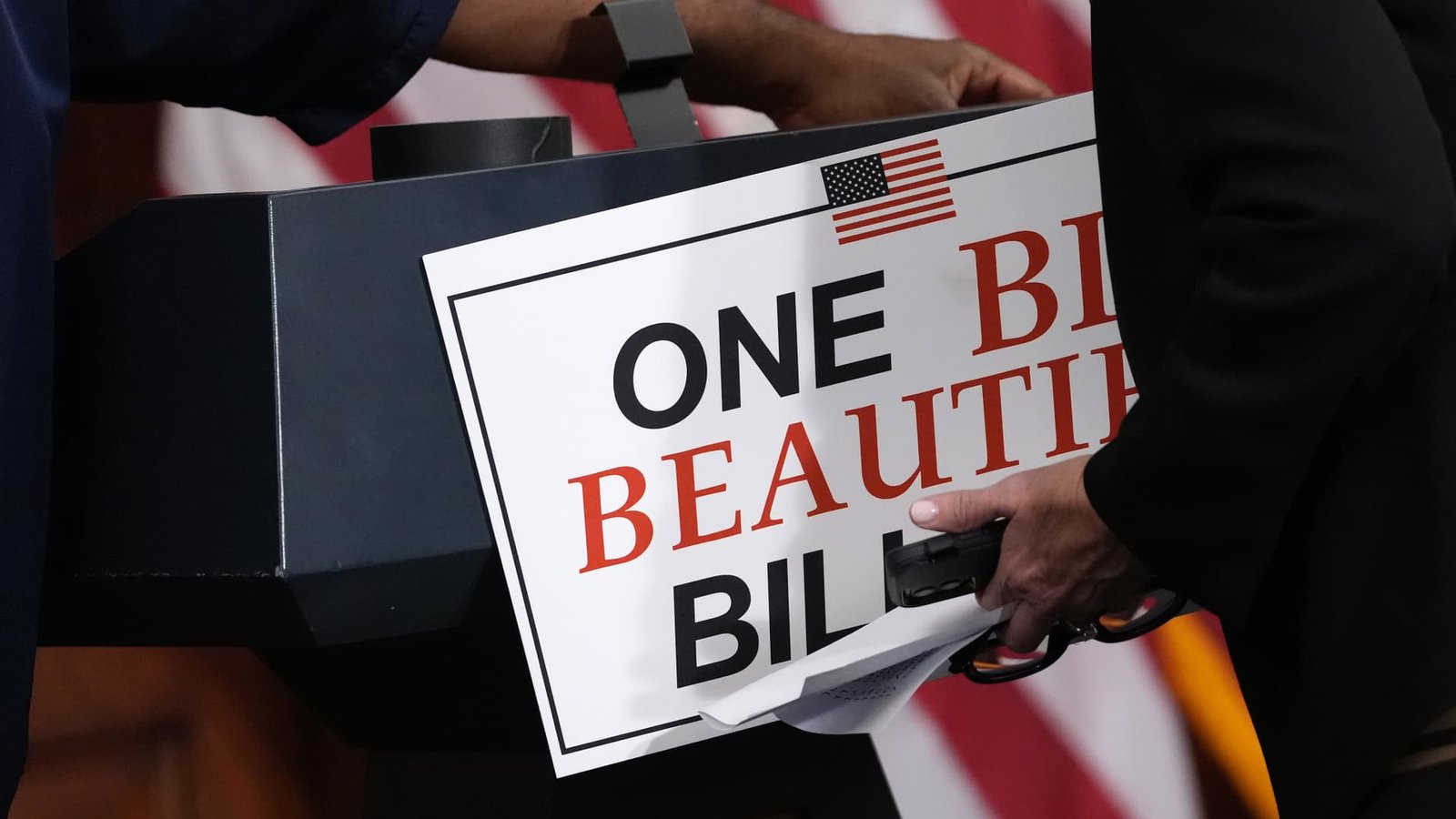Staff members remove a sign following a press conference after the House passage of the tax and spending bill, at the U.S. Capitol on May 22, 2025 in Washington, DC.
Kevin Dietsch | Getty Images
House Republicans passed a multi-trillion-dollar tax and spending package after months of debate, which included many of President Donald Trump‘s priorities.
Now, policy experts are bracing for Senate changes as GOP lawmakers aim to finalize the “big bill” by the Fourth of July.
If enacted as currently drafted, the House’s “One Big Beautiful Bill Act” would make permanent Trump’s 2017 tax cuts, while adding new tax breaks for tip income, overtime pay and older Americans, among other provisions.
More from Personal Finance:
What the House GOP budget bill means for your money
House bill calls for bigger ‘pass-through’ business tax break
What Medicaid and SNAP cuts in House bill mean for benefits
The House bill also approved historic spending cuts to programs for low-income families, including Medicaid health coverage and SNAP, formerly known as food stamps.
“Overall, the [Senate] bill is not going to be that much different,” said Howard Gleckman, senior fellow at the Urban-Brookings Tax Policy Center.
But there will be “a lot of debate” about the Medicaid provision, as well as other changes, he said.
Here are some other issues to watch during negotiations, policy experts say.
enough to stop the process until the president gets serious about spending reduction and reducing the deficit,” Sen. Ron Johnson, R-Wis., said last week on CNN’s ‘State of the Union.’
An earlier version of the House package could raise the deficit by an estimated $3.8 trillion over the next decade, according to the Congressional Budget Office. However, the agency hasn’t released an updated score to reflect the bill’s last-minute changes.
Other cost estimates for the House-passed reconciliation bill have ranged between $2 to $3 trillion over 10 years.
Under reconciliation, the Senate bill also must follow the “Byrd Rule,” which bans anything unrelated to federal revenue or spending.
After the Senate vote, House lawmakers must approve changes to the bill, which could be tricky with a slim Republican majority.
“That’s where the fight is really going to happen,” Gleckman said.
federal deduction for state and local taxes, known as “SALT,” which is scheduled to sunset after 2025.
Enacted by Trump via the Tax Cuts and Jobs Act, or TCJA, of 2017, the $10,000 cap has been a key issue for certain lawmakers in high-tax states like New York, New Jersey and California.
Before TCJA, filers who itemized tax breaks could claim an unlimited deduction on state and local income taxes, along with property taxes. But the so-called alternative minimum tax reduced the benefit for some higher earners.
After lengthy debate, House Republicans approved a $40,000 SALT limit. If enacted, the higher cap would apply to 2025 and phase out for incomes over $500,000.



